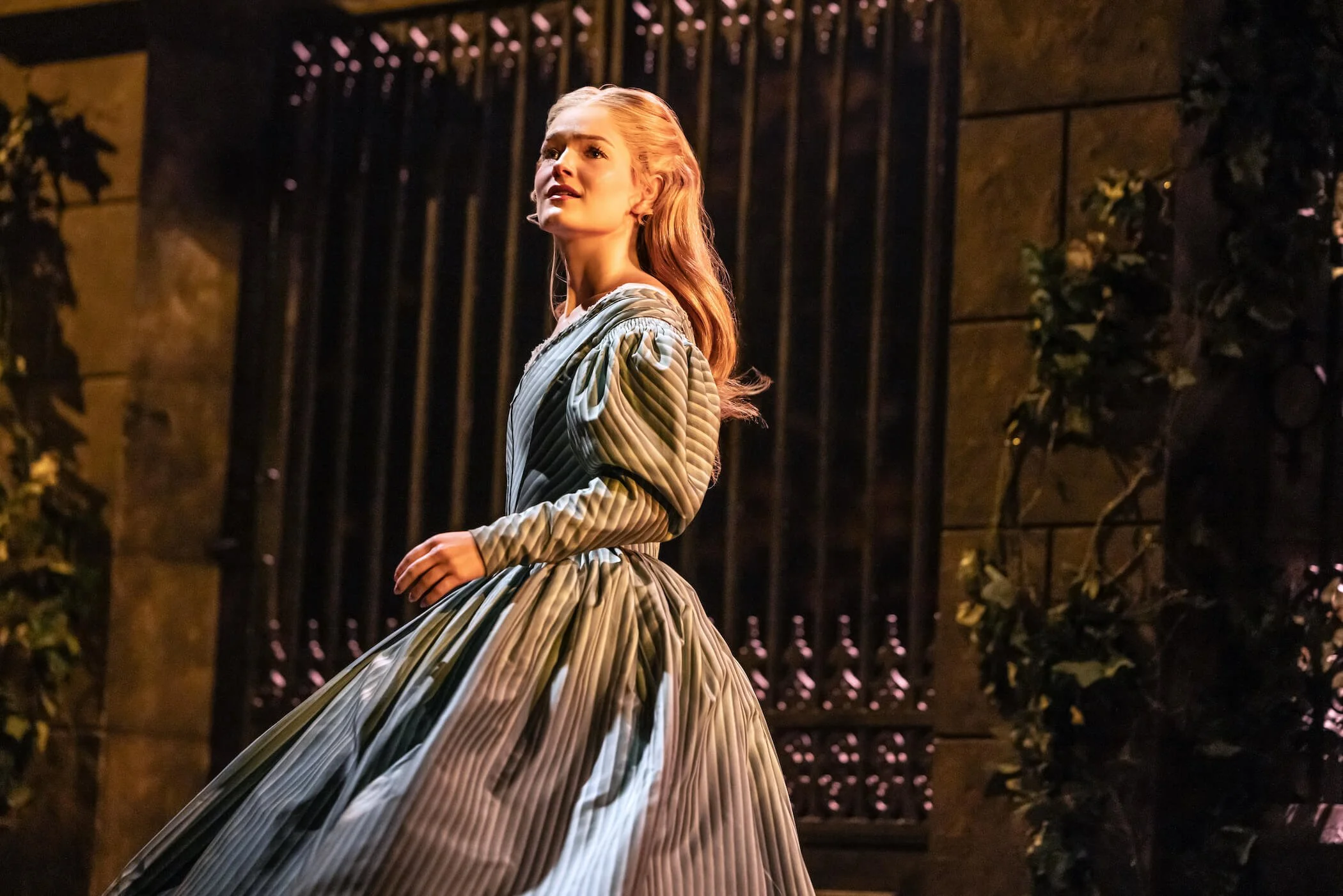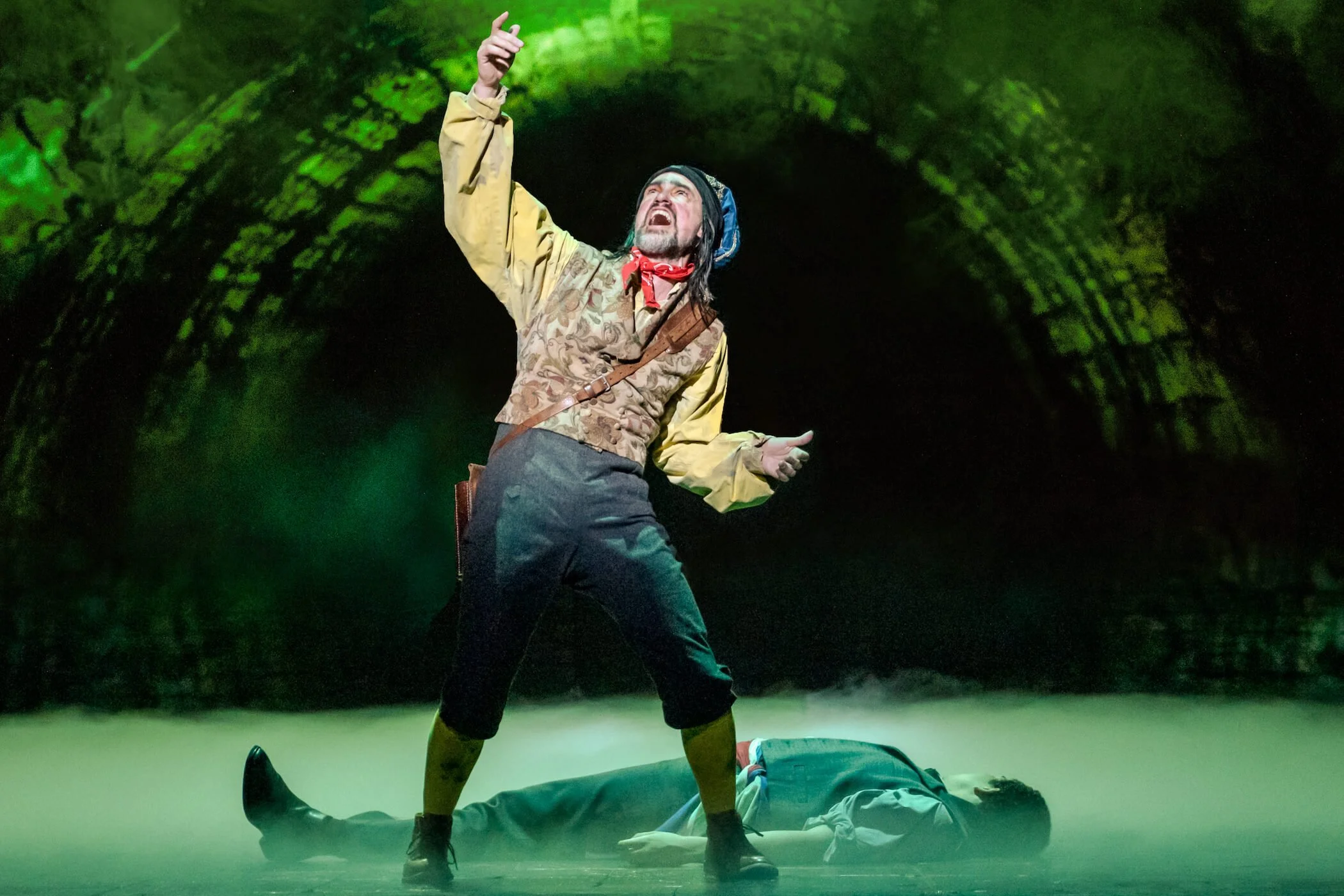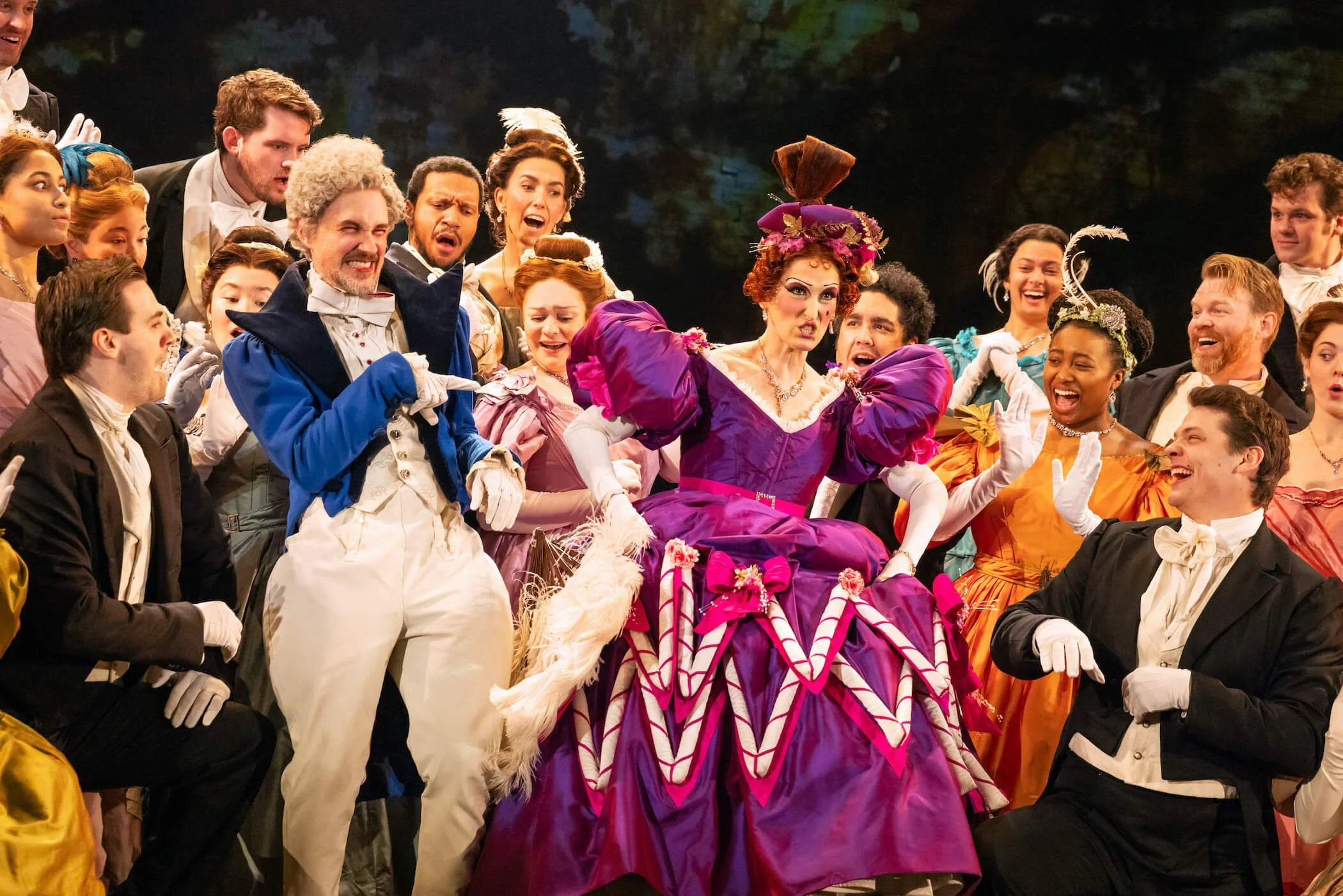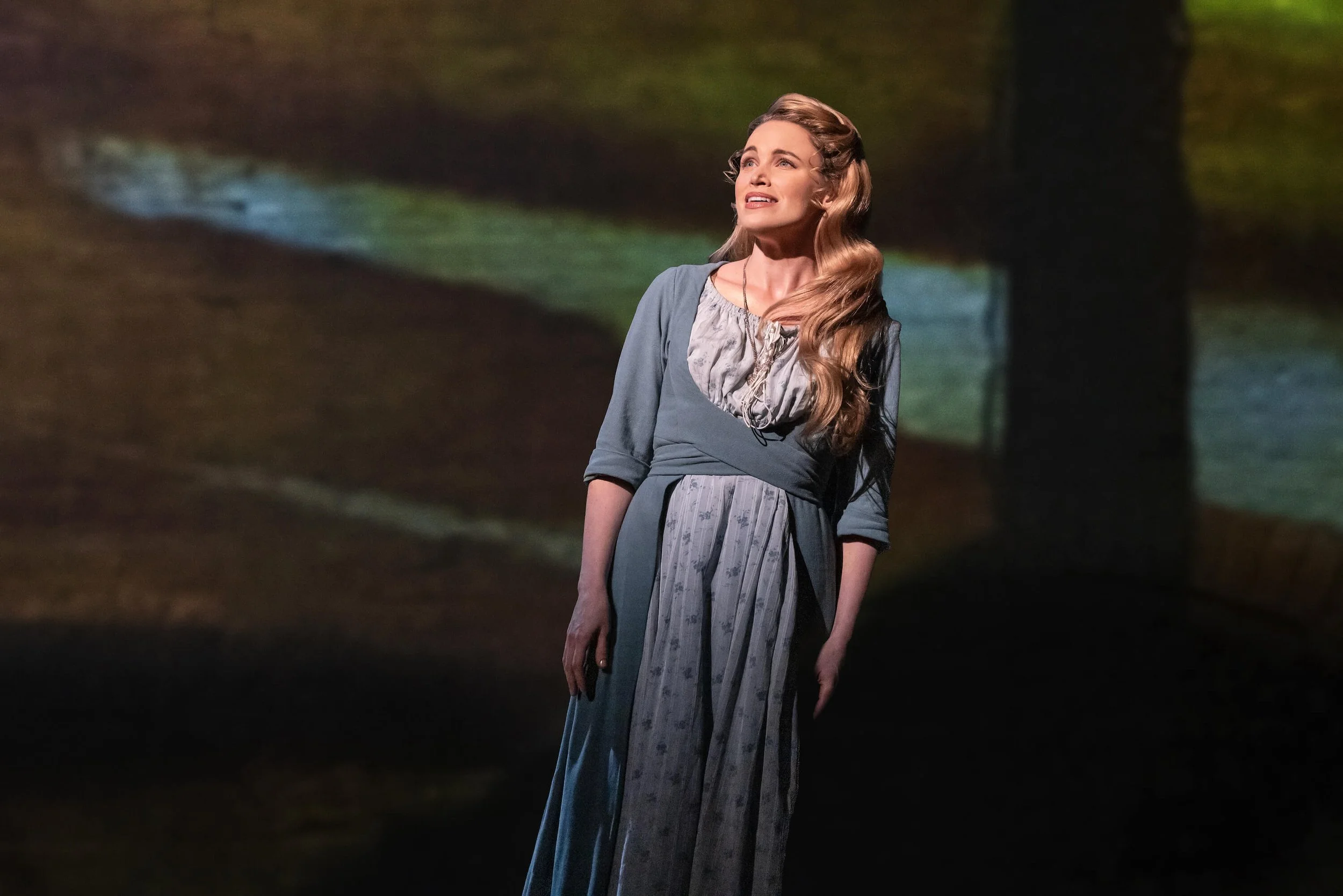Review: Les Misérables at DPAC Proved Themselves to be Masters of the House
The opening notes of the Les Misérables prologue may be one of the most recognizable opening numbers in modern theater (and movie musical) history. With a pulsing drumbeat that reverberates throughout the room, the production is theatrical perfection from the moment the curtain goes up.
“Prologue” - Nick Cartell as Jean Valjean in Les Misérables; Photo by Matthew Murphy & Evan Zimmerman for MurphyMade
Directed by Laurence Connor and James Powell and produced by the legendary Sir Cameron Mackintosh, Les Misérables is originally based on the French novel of the same name by Victor Hugo, and has since been adapted for the stage with music and lyrics from Claude-Michel Schönberg and Herbert Kretzmer (respectively).
Set against the backdrop of 19th century France, Les Misérables tells the story of prisoner Jean Valjean (Nick Cartell) and his life on the run after breaking his parole. Living under a fake name to avoid detection by relentless policeman Javert (Nick Rehberger), Valjean commits to a life of honor and integrity. After meeting the dying Fantine (played by Juliette Redden at this performance, typically played by Lindsay Heather Pearce), he promises to find her young daughter Cosette (Delaney Guyer) and raise her as his own.
It is normally here that I would begin by praising our leading player, and believe me, such praise is more than deserved for Mr. Cartell, who has played over 1,500 performances as Jean Valjean in this touring production.
But this time, I want to start with a comment about the rest of the cast. No show would be complete without the scene-setting, world-building ensemble. But in Les Mis, they are so much more than that. From start to finish, each number gives someone new a moment to shine as the townspeople speak about their predicament. Be it prisoners on a boat in the prologue or the prostitutes masquerading as lovely ladies or the bright-eyed students desperate to make a difference, each song is full of one or two lines sung by the various characters not often given the credit they are due. And not only does this make for a richer, more well-rounded tale, but it also gives us as audience members a chance to appreciate the vocal and acting talent and passion we otherwise don’t get to see in other ensembles.
"Master of the House" - Matt Crowle as Thénardier in Les Misérables; Photo by Matthew Murphy & Evan Zimmerman for MurphyMade
But in a show so full of characters that come and go as the years pass, the one constant is Jean Valjean. I have seen Nick Cartell in this role several times now, and I am continuously impressed with his ability to bring something new to the character. His honey-sweet vocals are no surprise, and he has mastered notoriously difficult musical numbers like “Bring Him Home” and the end of his first “Soliloquy.” But it is his small moments in between that continue to capture my attention, like the utter joy and affection between him and little Cosette (alternating between Emerson Mae Chan and Greta Schaefer) as she throws herself into his arms for the first time, each of them feeling safe and loved at last.
Taking on the role of poor worker-turned-prostitute Fantine for the week is Juliette Redden. While Fantine may start out delicate, soft, and desperate to send money for care for her sick daughter Cosette, Redden’s vocals are anything but, bringing a voice that is strong and powerful with her own kind of rebellious resolve in her number “I Dreamed a Dream.” Spinning a web of wistful and reminiscent storytelling, Redden subtly brings her audience tightly into her clutches and doesn’t let go.
Comparatively, innkeepers Madame Thénardier (Victoria Huston-Elem) and her slovenly husband Thénardier (Matt Crowle) are rowdy and outlandish comic relief. Their drunken antics during numbers such as “Master of the House,” “Dog Eats Dog,” and “Beggars at the Feast” bring just enough lighthearted laughs as they play off of each other’s cheeky shenanigans. One almost doesn’t know where to look when they are on stage for fear of missing the next bit of physical comedy.
(from L) Jake David Smith as Marius, Mya Rena Hunter as Éponine, Delaney Guyer as Cosette, Nick Cartell as Jean Valjean in Les Misérables; Photo by Matthew Murphy
If the Thénardiers are all comedy, relentless policeman Javert is all business. Stoic and determined, most of Rehberger’s vocal moments in the show are the same cadence and repeat the same few melody bars over and over, serving as a parallel to his unwavering commitment to his mission for nearly 20 years. It is not until his numbers “Stars” and “Soliloquy” that Rehberger gets a chance to switch things up, finally showing off his own vocal talent, backed by truly a gorgeous set and digital projection screen that seamlessly blends modern design and Victor Hugo’s original paintings (projections realized by Finn Ross and Fifty-Nine Productions with set and imagine design by Matt Kinley) to create a spectacular visual feast.
As the production jumps in time once again, a new generation of characters take the stage as audiences are introduced to Éponine (Mya Rena Hunter), Cosette (Delaney Guyer), Marius (Jake David Smith) and Enjolras (Christian Mark Gibbs) as their stories intertwine and collide.
Smith is precious as the geeky, Romeo-esque Marius as he falls head over heels for Cosette in numbers like “In My Life” and “A Heart Full of Love.” But when he takes his place on the barricade, standing shoulder to shoulder with his friends for a cause he believes in, his almost childlike voice changes to reflect the adult he has become, bringing deeper, richer, leading-man notes to numbers like “One Day More” and “Empty Chairs at Empty Tables,” bringing a haunting maturity to Marius not often seen in the character.
“The Barricade” - Christian Mark Gibbs as Enjolras and company in Les Misérables; Photo by Matthew Murphy
If Marius takes some convincing, Enjolras is the one pushing him to join the fight. Fiery and passionate from the get-go, Gibbs brings a youthful exuberance to the cause as he and Marius play off of each other’s energy atop the barricade (which is a thing of technical beauty itself). Gibbs combines the confidence and charisma of a leader with those swoon-worthy Enjolras notes as he emboldens the students (and precious little Gavroche, played by Jackson Parker Gill and Jack Jewkes) in their number “Red and Black.”
In comparison to the bro-like banter he has with the other students, Smith and Guyer have a dreamy, sweet connection. Guyer’s vocals are as light as her bouncy golden curls, and her signature operatic high notes can be heard clear and bright during group numbers like “One Day More” and the “Finale.” A sunflower personified, Guyer’s Cosette brings the same kind of quiet, delicate strength as her mother Fantine.
“On My Own” - Mya Rena Hunter as Éponine in Les Misérables; Photo by Matthew Murphy
Rounding out the leading players is the spunky Éponine. Masking her pain and unrequited love for Marius with feisty teasing, Hunter’s number “On My Own” earned her the biggest applause of the night. Hunter’s Éponine is perhaps a little less polished and poised than those that came before it, making her plight all the more tangible and heartbreaking as we watch Éponine continue to give her love and kindness to those around her without asking for anything in return.
The production also features lighting design from Paule Constable, original costume design from Andreane Neofitou, additional costume design from Christine Rowland and Paul Wilis, additional material from James Fenton, and an adaptation from Trevor Nunn and John Caird.
Les Misérables runs the Durham Performing Arts Center in Durham, North Carolina through Sunday, July 20, 2025. Children under the age of six will not be permitted, and the production is not recommended for anyone under the age of 10, as it features mature themes that may not be appropriate for young audiences. The production makes use of strobe lights and loud noises. Tickets can be purchased here.
Feature Photo Credit: "One Day More" - Christian Mark Gibbs as Enjolras in Les Misérables; Photo by Matthew Murphy













